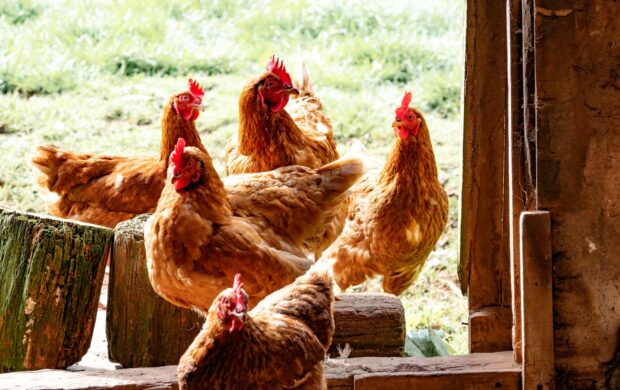Ahead of his most recent appearance as cinematic superhero Thor, Chris Hemsworth sat down with the fitness and nutrition magazine, Men’s Health, to discuss his real-life efforts to reduce his environmental footprint through his transition to a plant-based diet. While he is far from the first celebrity to speak publicly about the environmental and health benefits of a plant-based diet, the significance lies with the two million readers of the mainstream magazine and Hemsworth’s 20-million strong Instagram following, who idolise him for his “superhero shape.” The well-known director James Cameron also explicitly made the link between plant-based diets and health and improved performance in his recent documentary exploring the success behind elite athletes from the NFL, NBA and beyond.
Beyoncé went one step further and launched a vegan meal planner that personalises meals and shopping for users, harnessing artificial intelligence to make plant-based eating more accessible for consumers. From a single veggie burger in the bottom corner of the frozen section where only the most committed vegetarian could find them, to a variety of plant-based options being sold alongside meat in some supermarkets, plant-based diets are moving out of the niche and becoming more widespread, even desirable. What other factors, beyond celebrity influence, are driving this shift? Is consumer behaviour changing meaningfully to shift consumption patterns and what implications does it have for the future of the protein system?
Investors look beyond start-ups to industry-wide risk mitigation
Investors were some of the first to realise the opportunity for financial returns on innovative plant-based products that could begin to capture a portion of the enormous animal protein market. For the last few years, money has been pouring into start-ups, but the wave of investor influence is beginning to spread further. Just this year, Fair Animal Investment Risk and Return (FAIRR), which has over $8.2 trillion in its management, published a report articulating the investment risks and opportunities in the protein system and evaluating food manufacturers and retailers on their approach to sustainable protein. FAIRR has also produced an index of the largest global animal protein companies, assessing their critical environmental, social and governance issues. Investors are now pushing conversations about sustainable protein solutions out of the isolated R&D teams or sustainability departments, and up to the boardroom.
Meanwhile, investment in plant-based products and start-ups has expanded beyond the venture fund crowd to mainstream businesses that understand they need to invest to capture the potential of this trend. Meat-giant Tyson Food’s investment in Future Meat Technologies might be the latest, but it builds on their previous investments in Memphis Meats and similar investments and announcements from Maple Leaf Foods and Nestle in 2017. All are traditional animal-protein based companies that have publicly stated their intent to be leaders in plant-based protein.
Businesses shift from innovation to limiting choice for customers and employees
Beyond investment in innovation from food manufacturers, businesses are making bold moves to influence and respond to shifting attitudes towards plant-based protein. The co-working company WeWork announced it would remove meat from all staff events and staff will no longer be able to expense meals that include meat. This reflects the company’s awareness of its environmental impact beyond the footprint of its buildings, and sends a strong signal to its 175,000 members in 64 cities around the world. Similarly, Virgin Atlantic announced plans this summer to remove several unsustainable ingredients from in-flight menus. These announcements are a significant shift from offering better, and more, plant-based options, towards removing unsustainable food choices for consumers. Time will tell if this this new approach will be welcome, thanks to the rising popularity of plant-based options, or be seen as restricting individual choice.
Governments track and attempt to influence meat consumption
In France, China, and New Zealand, governments have been looking for policy-based solutions to curb the over-consumption of animal protein by their citizens. With momentum building behind plant-based diets, governments with animal-protein heavy economies are taking notice and considering the potential impacts. A report on the future of protein in New Zealand found that, while shifting consumer attitudes are increasing demand for plant-based protein, it is so far insufficient to disrupt the status quo. If this trend continues and plant-based diets become the norm, the opportunity identified in the report is to build New Zealand’s reputation for providing high-quality, more environmentally-friendly meat to satisfy ‘eco-eaters’ who consume meat on special occasions.
Meanwhile, in China, we may already be seeing the impacts of the 2016 commitment to halve meat consumption. Chinese consumers, particularly in the 20-35 age range, are increasingly switching to healthier plant-based options. The result, according to Euromonitor, is falling sales of pork over the last three years from 42.5 million tonnes to 40.9 million tonnes – still a staggering and unsustainable amount, but an encouraging trend considering sales of vegetable based products are up as much as 30%.
Consumer attitudes become polarised
On the other hand, in France, there are indications that attitudes towards meat are hardening to the extent that butchers are seeking government protection from animal-rights activists. Several butcher shops were vandalized across France and in neighbouring Switzerland with the slogan “no to speciesism”, a reference to a movement that opposes the consumption of meat, in the belief that all species are equal. Is this a sign that meat is becoming increasingly socially unacceptable, or are these acts of vandalism from a fringe group of animal-rights activists adding to the polarisation of the protein debate?
In the United States, the swell of innovation and consumer interest in plant-based and clean meat options has launched a legal debate on what can be called “meat” and “milk”. However, these debates are more a reflection of anticipated consumer demand, than a reaction to the current shift in behaviour. Despite increasing interest in plant-based diets, American consumers are anticipated to consume a record amount of meat in 2018. The lone bright spot in that projection is a shift from beef to chicken as Americans look for healthier and more convenient meal solutions, a trend that resulted in roughly ten percent reduction in diet-related greenhouse gas emissions between 2005 and 2014.
High potential, high urgency for impact
Taken together, these signals indicate both the growing momentum of the plant-based movement and the need for further work to be done to meaningfully shift consumer diets in developed economies. A recent report by GRAIN highlighted the urgency of this issue, finding that the five largest meat and dairy companies together emit more greenhouse gases than major oil companies. As other major emitting industries like energy and transportation decarbonise, meat production will represent a more significant proportion of the carbon budget. According to Project Drawdown, a ranked-list of the top 100 climate solutions, increased uptake of plant-based diets is the no.4 solution to reversing global warming. It is also noted as “the most effective way an individual can stop climate change.” The challenge ahead is to scale-up the growth in the plant-based movement to deliver meaningful and lasting changes in consumer behaviour.
Consumer behaviour is notoriously difficult to influence but, never one to shy away from a challenge, at Forum for the Future we have been working for the last three years to increase the consumption of plant-based proteins. First, we built a powerful global coalition of a cross-sector food businesses that are driving innovation and change within their own organisations. Then we teamed up with chefs, trend-setters, and leaders in the food industry, to help shape a more balanced plate and diversify protein choices. Likewise, today’s culinary students – and tomorrow’s chefs – will play a crucial role in transforming our attitudes towards food in a healthy and environmentally responsible way (see link below). Finally, we are teaming up with a group of school districts from around the United States, collectively serving three million meals a year, to find new, delicious plant-based options to serve their students. By helping kids understand early in life that plants contain protein, are better for the environment and, most importantly, are tasty, we hope to influence purchasing behaviour well into the future.
But the simplest thing you can do, as pointed out by the experts at Project Drawdown, is change your own eating habits, and tell your friends to do the same. Start with the easy stuff, like slightly smaller portions of meat for your entrée, and then begin to explore new meals based around plant-based foods. Before you know it you will be healthier and have a smaller environmental footprint.
If you’re interested to discuss our work in protein further, please get in touch with Lesley Mitchell.











Join discussion